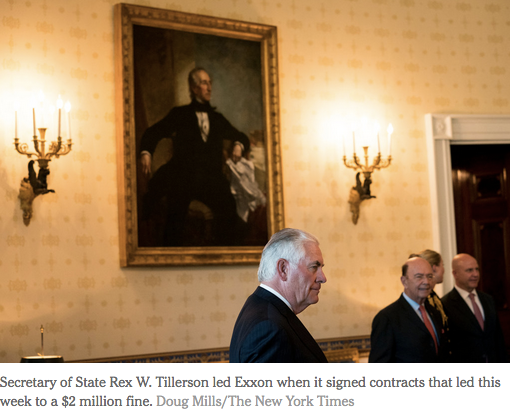The core of the dispute is whether Exxon violated sanctions by signing eight contracts with Rosneft, the Russian state oil company, in May 2014. Signing on behalf of the Russian state oil company was Igor Sechin, its chief executive, who had been blacklisted by Treasury a month before.
Exxon argues that it had received guidance that it was not a problem if Mr. Sechin signed such contracts in his official capacity, as long as the company was not doing business with him as an individual. Exxon points to briefings by White House officials and news articles, including one from The New York Times that year, giving the impression that the company was in the clear.
“U.S. persons are not prohibited from dealing with Rosneft, including participating in meetings of the company board,” a Treasury official told The Times in April 2014.
Exxon and the Treasury Department discussed the situation directly in 2015, but according to Exxon it heard nothing more for a year. Then last year, Treasury indicated that the comments made by White House and Treasury officials in the press did not give Exxon the go-ahead. Instead, the department pointed to guidance on its website that warned companies to be cautious about entering into contracts with people who were under sanction.




